Date: December 14, 2022
Venue: St. Teresa’s College, Ernakulum, Kochi
On 14th December, 2022, Dr. Beloo Mehra, Director, BhāratShakti was invited to facilitate an interactive session at St. Teresa’s College at Kochi. This was a special outreach event organised as part of the 25th Kochi International Bookfest. The venue being one of the oldest and most distinguished colleges for women in the country, the topic chosen was most appropriate – Nari Shakti: Woman, an Indomitable Spirit.
About 50 post-graduate students, research scholars and faculty members attended the special interactive session held in the early afternoon. Before starting her session, Dr. Mehra presented a copy of her recent book – Understanding Contemporary India in the Light of Sri Aurobindo for the college library.
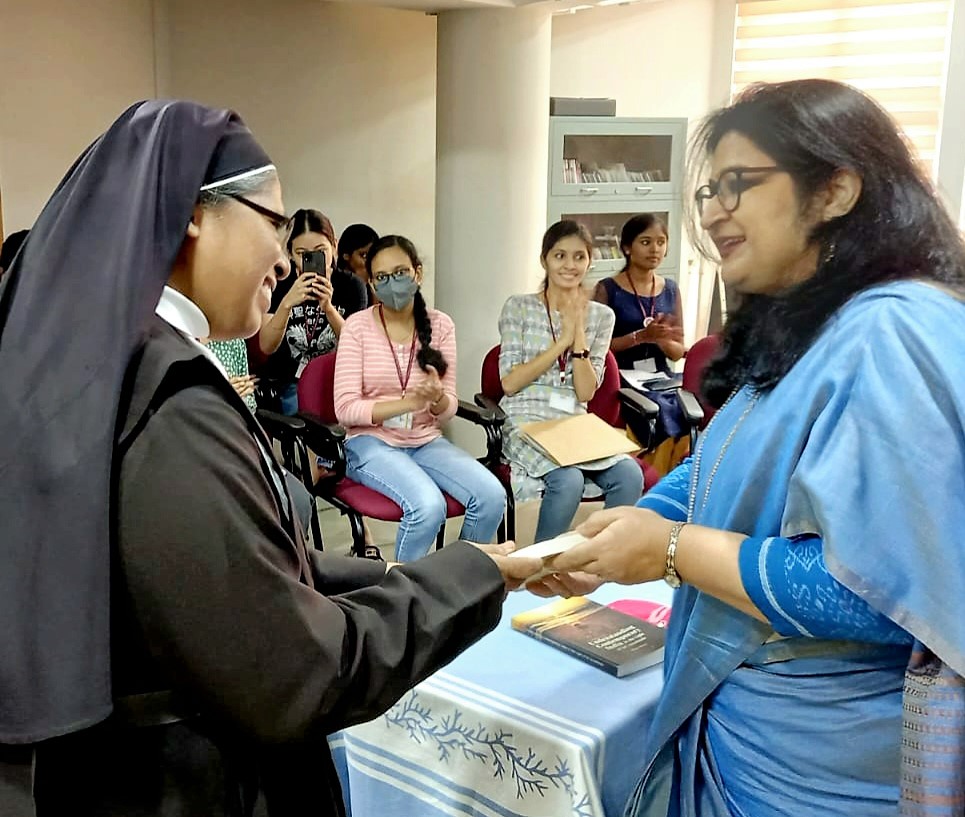
While approaching the topic in the light of Sri Aurobindo and the Mother, Dr. Mehra brought in several insights from the spiritual and cultural history of India to explain the essence of the word ‘shakti,’ and what that means in the context of womanhood. She elaborated that Shakti is the primordial cosmic energy which represents the dynamic forces that are thought to move through the entire universe. This is in essence divine feminine creative power, often referred to as ‘The Great Divine Mother’ in Indian religio-spiritual traditions. She gave examples of how in India we see all our goddesses as different forms of the Shakti, each one a unique manifestation of the universal Shakti, the universal conscious-force, the chit-shakti. These Shaktis are energies of the one Energy of the highest divine Being.
Another important point highlighted was that the ancient Indian mind saw the Brahman and Shakti as one and not two who are separable. There is the concept of Ishwara, the omniscient and omnipotent All-ruler, who by his Shakti, his conscious Power, manifests himself in Time and governs the universe. These complex ideas were explained in simpler terms through appropriate examples and keeping the whole approach conversational and inviting participants to engage with the ideas.
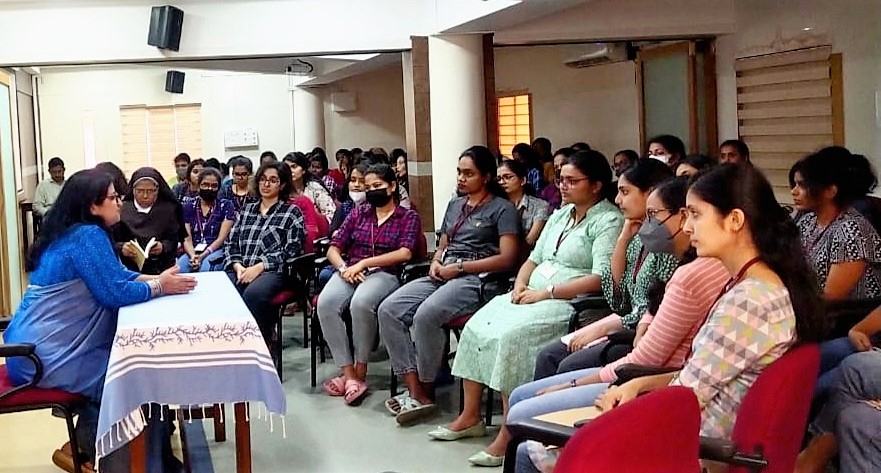
Dr. Mehra elaborated the point that the woman, in Indian culture, was traditionally seen as the shakti, the force and energy. And hence the concept of women empowerment becomes a bit out of place when seen in this light of woman being the power herself. As pointed out by several participants, this was a novel way to understand what it means to be a woman.
Dr. Mehra reminded that shakti is not something exclusive to women, but it is the creative power, the energy present in all of us. However, the nature of this energy is considered feminine in our tradition because it is only the female who has the potential to create new beings within herself. All creation – material, intellectual, aesthetic, spiritual – all is possible only because of the shakti, the cosmic energy.
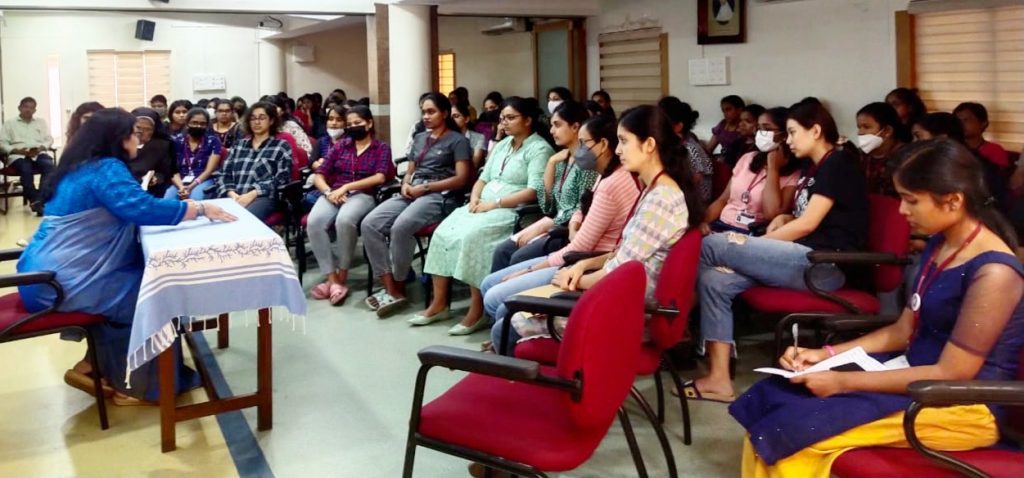
Throughout the session, several historical and contemporary examples were given by Dr. Mehra to make the complex ideas simpler for the young women participants. She had prepared a few slides with pictures of some inspiring women from various parts of India and spanning 4000 years. While showing these pictures she shared brief accounts of what made these women remarkable embodiment of the shakti. Many of the participants found this part of the session highly informative and inspirational.
In response to a question from one of the participants, Dr. Mehra briefly shared about Sri Aurobindo’s discussion of the four aspects of the Mother – Wisdom, Power, Harmony and Perfection, — and its implication for integral development of women and men. She also addressed a few questions about some of the challenges women and girls face in contemporary society.
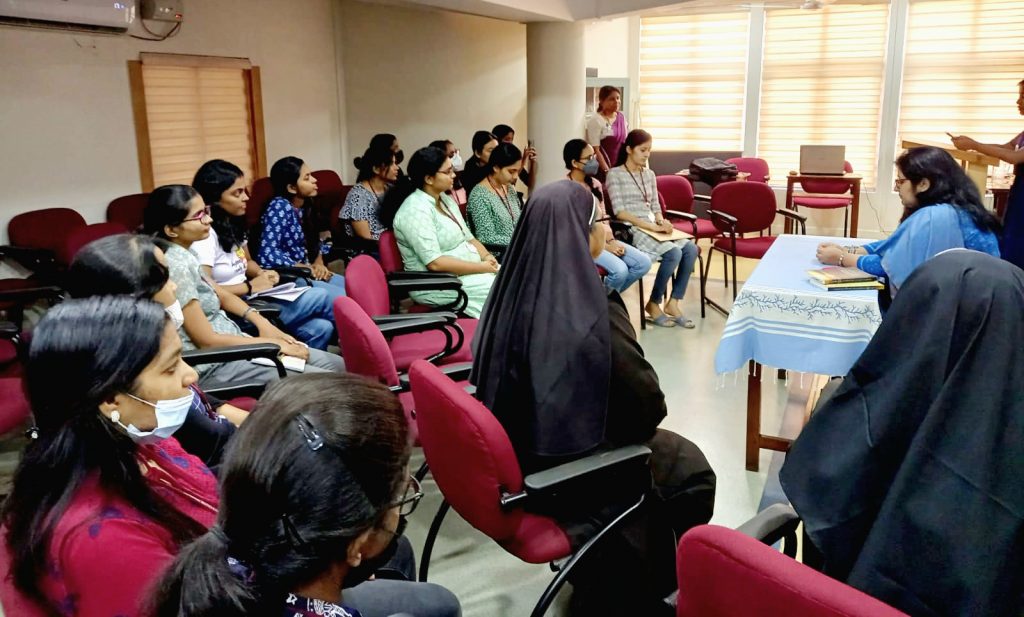
One of the participants posed a question about marginalisation of women’s voices in academia and literary world. Another interesting question was about women creating difficulties or presenting hurdles in other women’s advancement. The role of popular culture in promoting gender stereotypes was also briefly touched upon through the interaction. A few stories from the Indian epics were also briefly brought in to highlight the historical understanding of place and role of women in the society.
There was also interest among some of the participants to know more about the Mother and Sri Aurobindo. Dr. Mehra addressed these questions briefly due to time constraints.
The session was appreciated by all. Dr. Mehra was requested to revisit the college in future for a longer session on this topic as well as to share more Sri Aurobindo and the Mother and especially about their educational vision.
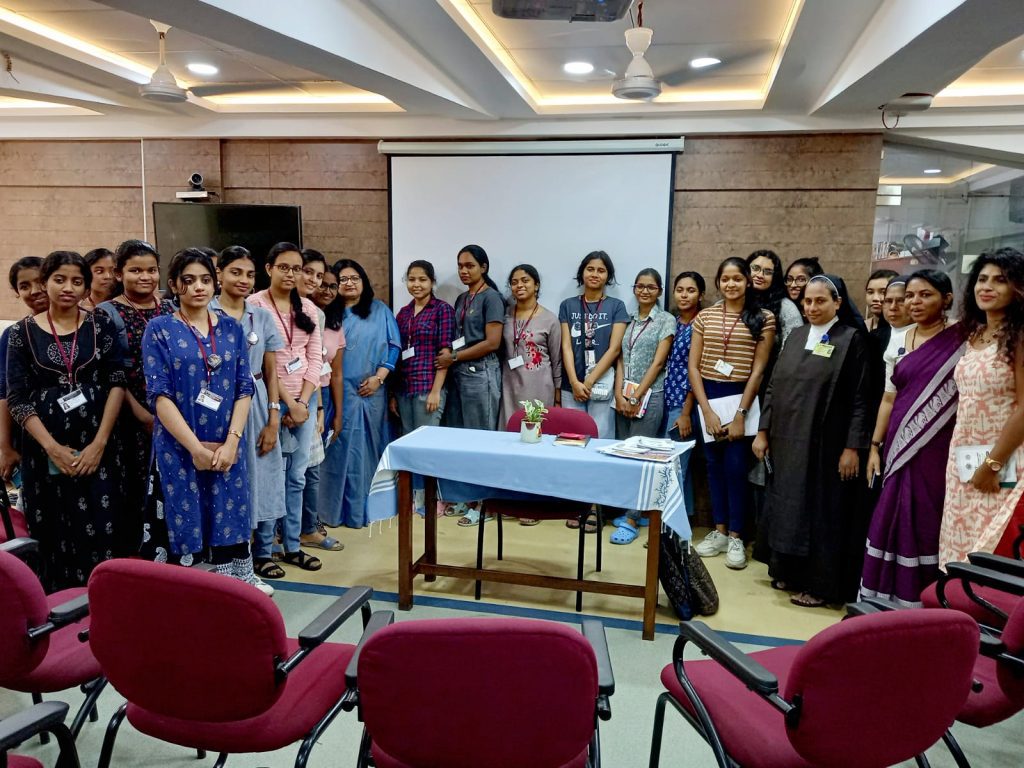
The head librarian of the college presented Dr. Mehra with a small plant as a token of appreciation and gratitude. Dr. Mehra was informed that the college has already started preparing for the upcoming centenary celebrations in 2025. And the special container for the plant was especially designed to mark the centenary year of St. Teresa’s College.
